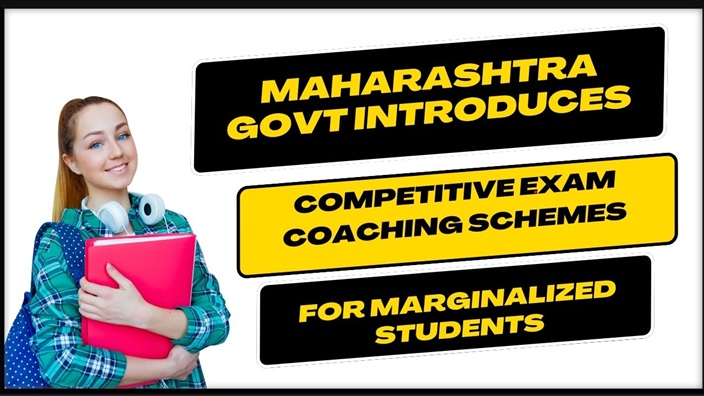Know about Maharashtra Govt Introduces Competitive Exam Coaching Schemes for Marginalized Students
The Maharashtra govt has initiated plans to establish a unified system to streamline training for competitive exams among students from marginalized communities.
This year, a committee was tasked with coordinating the training efforts conducted by various autonomous bodies for groups such as the Scheduled Caste (SC), Scheduled Tribes (ST), Other Backward Classes (OBC), Economically Weaker Sections (EWS), Maratha-Kunbis, and religious minorities.
This committee subsequently established a sub-committee dedicated to devising standard operating procedures for all facets of these training programs.
This includes evaluating and selecting private coaching institutes, determining the number of participants, reviewing applications, and issuing tenders.
Maharashtra Govt Introduces Competitive Exam Coaching Schemes
Historically, specialized autonomous bodies have independently managed education and welfare programs tailored to SC, ST, OBC, Marathas, and EWS.
These bodies include the Dr. Babasaheb Ambedkar Research and Training Institute (BARTI), Tribal Research and Training Institute (TRTI), Mahatma Jyotiba Phule Research & Training Institute (MAHAJYOTI), Chhatrapati Shahu Maharaj Research, Training, and Human Development Institute i.e. SARTHI, and Academy of Maharashtra Research, Upliftment, and Training i.e.AMRUT. Recently, the government has been working to harmonize these efforts.
A significant announcement by the state Higher and Technical Education Minister Chandrakant Patil last year indicated an expansion of the pre-examination preparation scheme.
This expansion would now support 750 Union Public Service Commission (UPSC) candidates and 500 Maharashtra Public Service Commission (MPSC) candidates, substantially increasing from the previous cap of 250 candidates for each category.
Furthermore, the minister revealed plans to raise the stipend for MPSC and UPSC aspirants, enhancing support for their preparation. Conversely, there’s a move to significantly reduce the fellowships provided to research scholars from marginalized communities.
Last June, a directive from state chief secretary Manoj Saunik proposed capping the fellowships at 400 across different community groups, marking a drastic decrease from the approximately 3,000 scholarships awarded in the previous cycle.
However, this move towards standardization has raised concerns among some community activists. Kuldeep Ambekar, president of Student Helping Hands, warns that such a policy could undermine the autonomy of organizations designed to cater to the specific needs of diverse communities.
According to Ambekar, viewing all students through a singular lens due to a handful of shared programs could negatively impact the bespoke support and development these bodies offer to their respective communities.
Thanks for visiting Physics Wala
- Toppers Preparation Strategies For BPSC Exam
- Exploring Educational Options Beyond Repeating JEE Main
- IELTS Eligibility Criteria: Unlock Your Global Opportunities
- IELTS General Training Preparation Strategy and Test Format
- IELTS Academic Training Preparation Strategies

